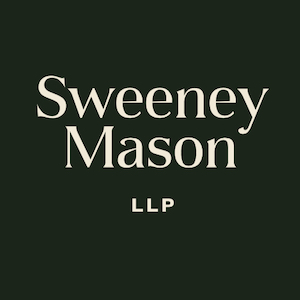California Court Turns California Dissolution Statute On Its Head
Holds that an action cannot be maintained by a dissolved entity
By Brad D. Bosomworth, Esq.
“Bad facts make bad law” is a common statement in the legal world. Maybe sometimes “bad plaintiffs make bad law.” That certainly appears to be the case in Mongols Nation Motor Cycle Club, Inc. v. City of Lancaster (2012) 2012 DJDAR 10721, in which the California Second District Court of Appeal turned California corporate law respecting dissolutions on its head. The Court held that a pending appeal of an action by the Mongols Nation Motor Cycle Club, Inc. (“Mongols Nation MCC”) against the City of Lancaster could not be maintained because the corporation had dissolved.
California law is clear that following dissolution a corporation continues to exist for purposes of winding up its affairs. Corporations Code Section 2010. Subsection (b) specifically provides that “no action or proceeding to which a corporation is a party abates by reason of its dissolution.”
The ability to dissolve a corporation even though its affairs have not been completely wound up is an important concept. The dissolution starts a four (4) year limitations period for corporate creditors to make claims against distributions made to the dissolved corporation’s shareholders. Corporations Code Section 2011(a)(2)(B). That is particularly important for construction and development entities where the outside limitations period for latent construction defects is ten (10) years. By dissolving and making final distributions to shareholders, the maximum period of exposure for the shareholders to have to repay distributions to the entity to satisfy claims which arise after completion of the work is effectively reduced from ten (10) to four (4) years.
It would have appeared plain enough that under the express language of Corporations Code Section 2010(b), Mongols Nation MCC’s dissolution would not have any impact whatsoever on its pending appeal and action against the City of Lancaster. But, the Court held that the continued prosecution of the action could not be deemed part of the winding up of Mongols Nation MCC. That statement, however, defies all logic. By definition, by being party to a pending action, Mongols Nation MCC’s affairs had not been completely wound up.
How did the Court get to its holding?
The Court focused on the declarations made as part of Mongols Nation MCC’s dissolution. In a Certificate of Dissolution a corporation is required by statute to make certain statements. It must either declare that (i) all known liabilities have been satisfied or provided for, (ii) its assets have been applied to its liabilities to the extent possible, or (iii) it never had any assets or liabilities. The corporation is also required to state that its affairs have been completely wound up. Corporations Code Section 1900.5.
In this case, Mongols Nation MCC stated that its affairs had been completely wound up and it never had assets or liabilities. As the Court pointed out, that position was irreconcilable with Mongols Nation MCC’s instant claims i.e., the action itself was an asset and was predicated on an underlying contract for lodging for a convention which it asserted the City of Lancaster had interfered with. Based on those irreconcilable positions, the Court concluded Mongols Nation MCC was “seeking to avoid the prospect of having to pay the City’s attorney fees and costs if the City were to” prevail on the pending appeal. That is, apparently the Court thought Mongols Nation MCC was trying to game the system. The Court, apparently, was not going to let Mongols Nation MCC get away with such actions.
Fair enough, but the Court need not have resorted to illogic or made that statement that “The certificate of dissolution, in stating the ‘corporation has been completely wound up,’ contradicts any claim that the instant lawsuit is part of a plan of winding up and dissolving.” Taking that statement at face value, no corporation involved in pending litigation could dissolve without impacting ongoing litigation. That appears to be directly contrary to the express language of Section 2010 unless such Section is deemed to apply only to actions in which the corporation is the defendant. There is no apparently authority to that effect.
In our opinion, the Court should have determined the pending appeal on its merits and permitted the pending action to be resolved on its merits. If the Court’s fear of Mongols Nation MCC intent to try to avoid liability to the City came to pass, the situation could have been dealt with at that later time. That is, the trial Court could have easily disregarded the statements in the Certificate of Dissolution that the entity never had assets or liabilities as patently disingenuous and permitted the City to pursue any assets the corporation did have or permit the City to pierce the corporate veil.
How the Court’s ruling will be reconciled in later actions, one can only speculate. We argue it should be disregarded as contrary to the intent of the California dissolution statutes.
Brad D. Bosomworth is an attorney specialize in General Corporate and Business Law, and Intellectual Property. For additional information about Corporate and Business Law, please contact Brad D. Bosomworth at (408) 356-3000, or the contact information on the right of this page.
SWEENEY, MASON, WILSON & BOSOMWORTH is a Professional Law Corporation located at 983 University Avenue, Suite 104C, Los Gatos, California, 95032, telephone (408) 356-3000. This “Legal Notice” is designed to assist our clients and other business owners in spotting issues which may result in costly litigation and court awarded damages if allowed to continue unaddressed. SWEENEY, MASON, WILSON & BOSOMWORTH’s philosophy is that by educating our clients, and other businesses, about their legal obligations, including changes in the law, we best serve our legal goal of minimizing or preventing expensive litigation.

